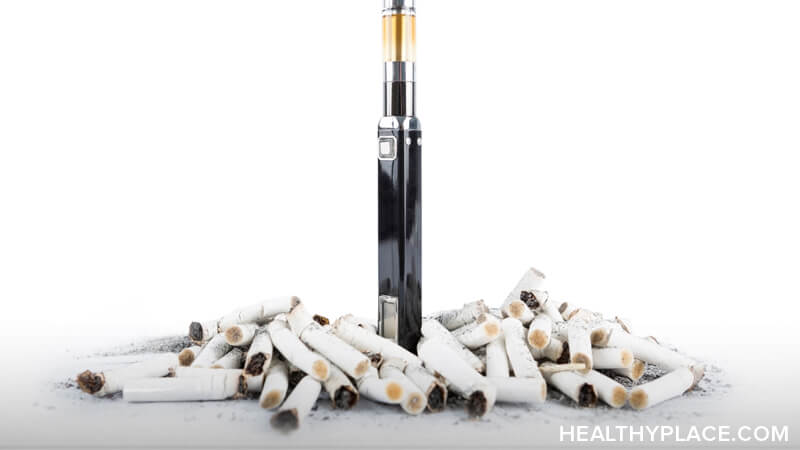Nicotine Addiction: Is Nicotine Addictive?

Nicotine in tobacco products is a highly addictive drug. Those with nicotine addiction who try to quit often can't deal with troublesome nicotine withdrawl symptoms.
Addiction to Nicotine: You Know It's Harmful, But You Still Smoke
Yes, nicotine is addictive. Most smokers use tobacco regularly because they are addicted to nicotine. Addiction is characterized by compulsive drug seeking and use, even in the face of negative health consequences. It is well documented that most smokers identify tobacco use as harmful and express a desire to reduce or stop using it, and nearly 35 million of them want to quit each year. Unfortunately, only about 6 percent of people who try to quit smoking are successful for more than a month. It's highly likely this group of people is facing nicotine addiction.
Addicted to Nicotine: How Cigarette Smokers Become Hooked
Research has shown how nicotine affects the brain to produce a number of effects. Of primary importance to its addictive nature are findings that nicotine activates reward pathways—the brain circuitry that regulates feelings of pleasure. A key brain chemical involved in mediating the desire to consume drugs is the neurotransmitter dopamine, and research has shown that nicotine increases levels of dopamine in the reward circuits. This reaction is similar to that seen with other drugs of abuse and is thought to underlie the pleasurable sensations experienced by many smokers.
Nicotine's pharmacokinetic properties also enhance its abuse potential. Cigarette smoking produces a rapid distribution of nicotine to the brain, with drug levels peaking within 10 seconds of inhalation. However, the acute effects of nicotine dissipate in a few minutes, as do the associated feelings of reward, which causes the smoker to continue dosing to maintain the drug's pleasurable effects and prevent withdrawal.
(Read Tobacco Facts: How You Become Addicted to Cigarettes for more info on how addiction to nicotine works.)
Nicotine is Addictive
One of the key measures of whether a substance is addictive or not is: when you stop using it, does it produce withdrawal symptoms? Nicotine does and that's one sign that nicotine is addictive. The symptoms include:
- Irritability
- Craving
- Cognitive and attentional deficits
- Sleep disturbances
- Increased appetite
These symptoms may begin within a few hours after the last cigarette, quickly driving people back to tobacco use. Symptoms peak within the first few days of smoking cessation and may subside within a few weeks. For some people with nicotine addiction, however, symptoms may persist for months. (Read: Nicotine Withdrawal and How to Cope with Nicotine Withdrawal Symptoms)
While withdrawal is related to the pharmacological effects of nicotine, many behavioral factors can also affect the severity of withdrawal symptoms. For some people who are addicted to nicotine, the feel, smell, and sight of a cigarette and the ritual of obtaining, handling, lighting, and smoking the cigarette are all associated with the pleasurable effects of smoking and can make withdrawal or craving worse.
While nicotine gum and patches may alleviate the pharmacological aspects of withdrawal, cravings often persist. Other forms of nicotine replacement, such as inhalers, attempt to address some of these other issues, while behavioral therapies can help smokers and others dealing with nicotine addiction identify environmental triggers of withdrawal and craving so they can employ strategies to prevent or circumvent these symptoms and urges.
Sources:
- Benowitz NL. Pharmacology of nicotine: addiction and therapeutics. Ann Rev Pharmacol Toxicol 36:597-613, 1996.
- Bornemisza P, Suciu I. Effect of cigarette smoking on the blood glucose level in normals and diabetics. Med Interne 18 :353-6, 1980.
- U.S. Department of Health and Human Services. Reducing Tobacco Use: A Report of the Surgeon General. Atlanta, Georgia: U.S. Department of Health and Human Services, Centers for Disease Control and Prevention, National Center for Chronic Disease Prevention and Health Promotion, Office on Smoking and Health, 2000.
- Henningfield JE. Nicotine medications for smoking cessation. New Engl J Med 333:1196-1203, 1995.
- National Institute on Drug Abuse
APA Reference
Gluck, S.
(2021, December 16). Nicotine Addiction: Is Nicotine Addictive?, HealthyPlace. Retrieved
on 2026, March 1 from https://www.healthyplace.com/addictions/nicotine-addiction/nictotine-addiction-is-nicotine-addictive



